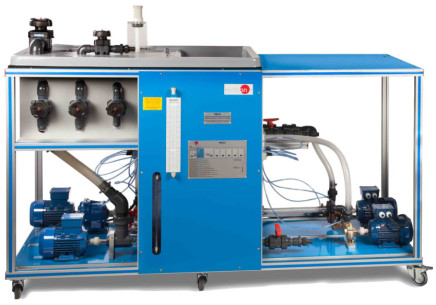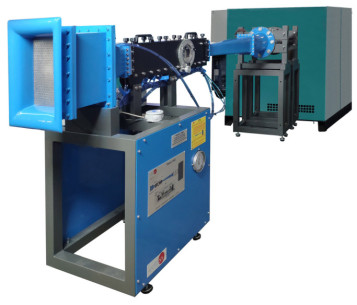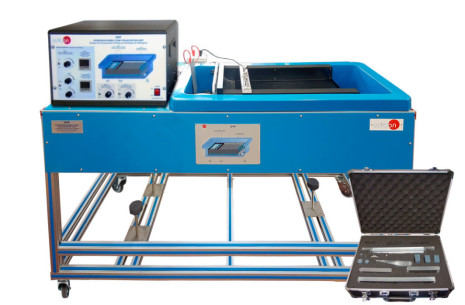- Início
- Produtos
- 1.- FÍSICA
- PROGRAMAS ACADÊMICOS
- EDUCAÇÃO TÉCNICA SUPERIOR
- ENGENHARIA DE ALIMENTOS
- ENGENHARIA TOPOGRAFÍCIA
- GEOLOGIA
- ENGENHARIA FLORESTAL
- ENGENHARIA AMBIENTAL
- ENGENHARIA ECOLÓGICA
- ENGENHARIA TÊXTIL
- ENGENHARIA PARA INDÚSTRIAS AGRÍCOLAS
- ENGENHARIA MECÂNICA
- QUÍMICA
- ENGENHEIRO QUÍMICA
- ENGENHARIA DE PROCESSOS
- ENGENHARIA GEOLÓGICA, MINERAÇÃO E PETRÓLEO
- CENTRO DE FORMAÇÃO DE PETRÓLEO
- ENGENHARIA NAVAL
- ENGENHARIA AGRÍCOLA
- ENGENHARIA ELETRÔNICA
- ARQUITETURA
- CIÊNCIA DA COMPUTAÇÃO E ENGENHARIA
- ENGENHARIA NUCLEAR
- ENGENHARIA AUTOMÁTICA
- ENGENHARIA ENERGÉTICA
- CENTRO DE FORMAÇÃO DE ENERGIA
- ENGENHARIA ELÉTRICA
- ENGENHARIA DE SISTEMAS
- ENGENHARIA AERONÁUTICA
- ENGENHARIA DO OCEANO E CIÊNCIAS MARINHAS
- FÍSICA
- ENGENHARIA INDUSTRIAL
- CENTRO INTERNACIONAL DE FORMAÇÃO TÉCNICA, DESENVOLVIMENTO E INVESTIGAÇÃO
- ENGENHARIA DE MATERIAIS
- ENGENHARIA METALÚRGICA
- ENGENHARIA CIVIL
- ENGENHARIA DE TELECOMUNICAÇÃO
- ENGENHARIA TÉRMICA
- ESCOLAS TÉCNICAS
- ELETRÔNICA
- COMUNICAÇÕES
- ELETRICIDADE
- CIÊNCIA DA COMPUTAÇÃO E ENGENHARIA
- TECNOLOGIA AUTOMOTIVA
- ENGENHARIA CIVIL
- MECÂNICA E FABRICAÇÃO
- MECÂNICA E METAL
- MECÂNICA DE FLUÍDOS
- REFRIGERAÇÃO E AR CONDICIONADO
- QUÍMICA INDUSTRIAL
- QUÍMICA
- TECNOLOGIA DE ALIMENTOS
- AGRICULTURA
- INDÚSTRIA AGRÍCOLA
- MANUTENÇÃO
- MARÍTIMO E PESCA
- MANUTENÇÃO AERONÁUTICA
- INSTRUMENTAÇÃO E CONTROLE
- MEIO AMBIENTE
- TECNOLOGIA
- TECNOLOGIA DA CONSTRUÇÃO
- TECNOLOGIA ELETROMECÂNICA
- TECNOLOGIA DE DESIGN ESTRUTURAL
- TECNOLOGIA DE PRODUÇÃO INDUSTRIAL
- TECNOLOGIA DA INFORMAÇÃO
- CONTROLE DE QUALIDADE
- TECNOLOGIA DE SISTEMAS DE ENERGIA
- TECNOLOGIA MINERAL E PETROLÍFERA
- TECNOLOGIA DE GÁS NATURAL
- ENERGIAS RENOVÁVEIS
- TECNOLOGIA DE TELECOMUNICAÇÕES
- TECNOLOGIA MECÂNICA
- TECNOLOGIA EÓLICA
- TECNOLOGIA NUCLEAR
- TECNOLOGIA DE CONTROLE DE PROCESSOS
- TECNOLOGIA DE SERVIÇOS GERAIS
- TECNOLOGIA DE LABORATÓRIO
- AUTOMAÇÃO E MECATRÔNICA
- TRANSPORTE E LOGÍSTICA
- EDUCAÇÃO TÉCNICA SUPERIOR
- 2.- ELETRÔNICA
- 3.- COMUNICAÇÕES
- 4.- ELETRICIDADE
- 5.- ENERGIA
- 5.1.- SMART GRIDS E SISTEMAS DE POTÊNCIA
- 5.2.- MICRO-REDES
- 5.3.- ENERGIAS RENOVÁVEIS
- 5.3.1.- ENERGIA SOLAR FOTOVOLTAICA
- 5.3.2.- ENERGIA SOLAR TÉRMICA
- 5.3.3.- ENERGIA EÓLICA
- 5.3.4.- ENERGIA MARINHA
- 5.3.5.- ENERGIA GEOTÉRMICA
- 5.3.6.- ENERGIA HIDRÁULICA
- 5.3.7.- BIOCOMBUSTÍVEIS
- 5.3.8.- SISTEMAS DE ARMAZENAMENTO
- 5.3.9.- CÉLULAS A COMBUSTÍVEL DE HIDROGÊNIO
- 5.3.10.- TURBINAS A VAPOR E CICLOS ORGÂNICOS RANKINE
- 5.3.11.- OUTROS SISTEMAS NÃO CONVENCIONAIS
- 5.4.- ENERGIAS CONVENCIONAIS
- 5.5.- ARMAZENAMENTO DE ENERGIA
- 5.6.- ALTA TENSÃO E SISTEMAS ELÉTRICOS DE PROTEÇÃO
- 5.7.- INSTALAÇÕES E MANUTENÇÃO
- 6.- MECATRÔNICA E AUTOMAÇÃO
- 7.- MECÂNICA
- 8.- MECÂNICA DE FLUIDOS
- 9.- TERMODINÂMICA E TERMOTÉCNICA
- 9.1.- FUNDAMENTOS E CONCEITOS BÁSICOS DE TERMODINÂMICA
- 9.2.- VENTILAÇÃO, CALEFAÇÃO, AR CONDICIONADO E ÁGUA QUENTE SANITÁRIA
- 9.3.- BOMBAS DE CALOR
- 9.4.- REFRIGERAÇÃO
- 9.5.- SISTEMA DE TUBULAÇÃO HIDRÁULICA TÉRMICA
- 9.6.- TRANSFERÊNCIA DE CALOR
- 9.7.- TROCADORES DE CALOR
- 9.8.- MÁQUINAS TÉRMICAS
- 9.9.- MOTORES DE COMBUSTÃO INTERNA
- 9.10.- INSTALAÇÕES E MANUTENÇÃO
- 10.- CONTROLE DE PROCESSOS
- 11.- ENGENHARIA QUÍMICA
- 11.1.- OPERAÇÕES UNITÁRIAS
- 11.1.1.- FLUIDIZAÇÃO
- 11.1.2.- EVAPORAÇÃO
- 11.1.3.- EBULIÇÃO
- 11.1.4.- DESTILAÇÃO E CRAQUEAMENTO
- 11.1.5.- EXTRAÇÃO
- 11.1.6.- DIFUSÃO
- 11.1.7.- SECAGEM E ARREFECIMENTO
- 11.1.8.- ABSORÇÃO E ADSORÇÃO
- 11.1.9.- TROCA IÔNICA E CORROSÃO
- 11.1.10.- CRISTALIZAÇÃO E PIRÓLISE
- 11.1.11.- FILTRAGEM, SEDIMENTAÇÃO E MISTURA
- 11.1.12.- TRATAMENTO DE SÓLIDOS
- 11.2.- REATORES QUÍMICOS
- 11.1.- OPERAÇÕES UNITÁRIAS
- 12.- TECNOLOGIA DE ALIMENTOS E ÁGUAS
- 13.- MEIO AMBIENTE
- 14.- ENGENHARIA BIOMÉDICA
- 14.1.- BIOMECÂNICA
- 14.1.1.- KITS DE FUNDAMENTOS DE MECÂNICA
- 14.1.2.- MÁQUINAS SIMPLES
- 14.1.3.- ESTÁTICA E DINÂMICA
- 14.1.4.- VIBRAÇÕES E OSCILAÇÕES
- 14.1.5.- TRIBOLOGIA (ATRITO, DESGASTE, LUBRIFICAÇÃO)
- 14.1.6.- MECÂNICA DE ESTRUTURAS
- 14.1.7.- FOTOELASTICIDADE E EXTENSOMETRIA
- 14.1.8.- ENSAIOS MECÂNICOS
- 14.1.9.- ENSAIOS ACÚSTICOS E TÉRMICOS
- 14.2.- ELETRÔNICA BIOMÉDICA
- 14.3.- EQUIPAMENTO BIOMÉDICO
- 14.1.- BIOMECÂNICA
- ACESSÓRIOS DE LABORATÓRIO
- PLANTAS PILOTO PERSONALIZADAS
- MÓDULOS
- EXPANSÕES
- LABORATÓRIOS
- 411
- 411
- 411
- 411
- 411
- 411
- 411
- 411
- 411
- 411
- 411
- 411
- 411
- 411
- 411
- 411
- 411
- 411
- 411
- 411
- 411
- 411
- 411
- 411
- 411
- 411
- 411
- 411
- 411
- 411
- 411
- 411
- 411
- 411
- 411
- 411
- 411
- 411
- 411
- 411
- 411
- 411
- Linhas de Negócio
- Tecnología
- Repositorio de materiales
- Sobre nós
- Notícias
- Contacte-nos
Fluid Mechanics: Advances, Importance, and Educational Applications
What does the area of fluid mechanics study?
Importance and Enhancement of Education through Specialized Fluid Mechanics Equipment
- Hydrostatics: Hydrostatics, a crucial branch of fluid mechanics, focuses on fluids at rest. It studies the distribution of pressure in liquids and non-moving gases. Hydrostatic pressure is a fundamental concept as it determines phenomena such as the buoyancy of submerged bodies and the measurement of depth in bodies of water.
- Hydraulic Channels: Hydraulic channels, essential in hydraulic engineering, are constructed pathways for the controlled flow of water. Their design and characteristics directly impact the efficiency of water distribution, agricultural irrigation, and hydroelectric power generation. Exploring these channels not only reveals the secrets of hydraulics but also highlights the importance of water management in modern society.
- Aerodynamics: Aerodynamics delves into the study of fluid behavior, especially air, when interacting with moving objects. From the shape of aircraft wings to automobile design, aerodynamics plays a crucial role in the efficiency and performance of various vehicles. Understanding aerodynamics not only drives innovation in design but also contributes to fuel consumption reduction and emissions.
- Fluid Machines: Fluid machines, from pumps to turbines, are devices designed to transfer energy between a fluid and a mechanical source. Understanding their characteristics is essential for optimizing efficiency in industrial and energy applications. Studying fluid machines involves not only knowing their theoretical foundations but also experimenting with specialized equipment to understand their practical operation.

Highlighted Fluid Mechanics Equipment
With over 45 years of research and collaboration experience with educators and researchers worldwide, EDIBON has created training and research equipment to enhance the educational process and contribute to research in various areas within fluid mechanics as mentioned above. Our offerings include training equipment that, when installed in laboratories, complement theoretical studies, thus improving learning and fostering new lines of research.
Among the different equipment designed by EDIBON are CFG-Fluid Channels, TAS25/100C-Supersonic Wind Tunnel, Computer Controlled (PC), PBOC-Multibomb Test Bench (4 types of pumps), Computer Controlled (PC), and UVF-Hydrogen Bubble Flow Visualization Equipment. These equipment offerings provide practical and visual experiences, strengthening the understanding of theoretical concepts and promoting educational and research excellence.
In conclusion, fluid mechanics emerges as an essential discipline in contemporary engineering and science. By understanding its fundamentals, exploring its branches, and experimenting with specialized equipment, we not only improve our understanding of the world around us but also empower future minds to address the technological and environmental challenges ahead. The installation of specialized fluid mechanics equipment in educational environments is the key to opening doors to a future driven by innovation and knowledge.
 Preferências de cookies
Preferências de cookies



